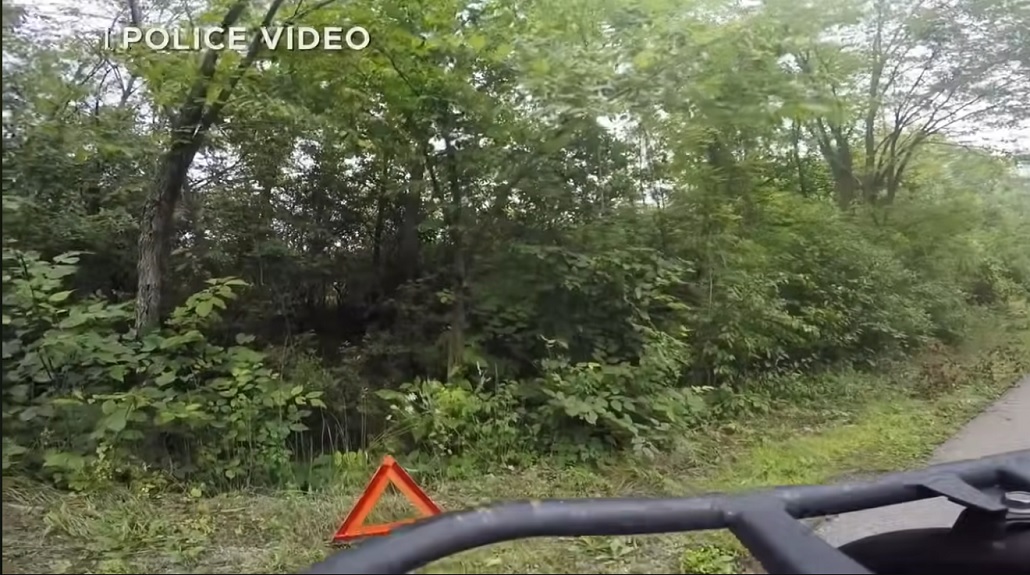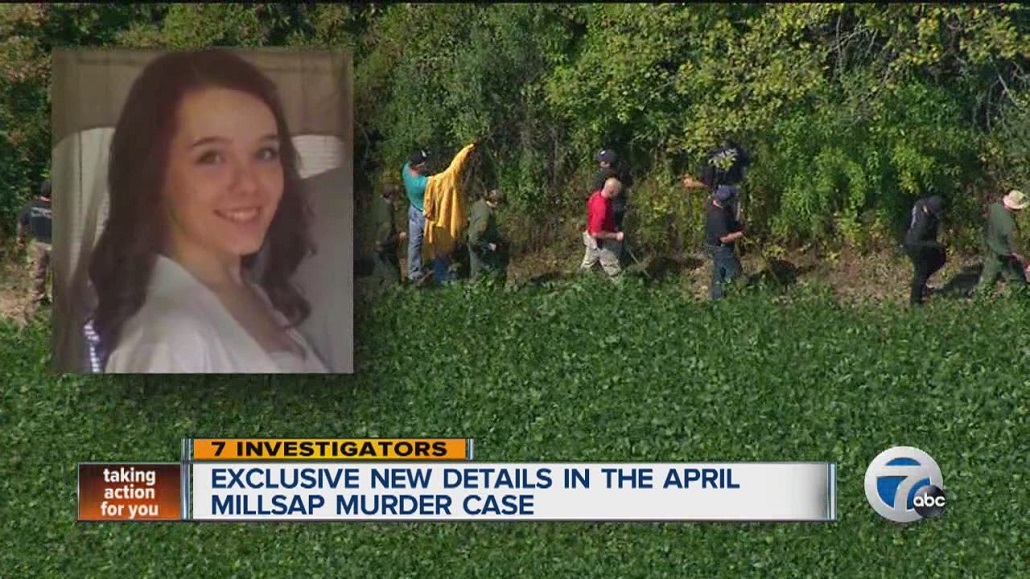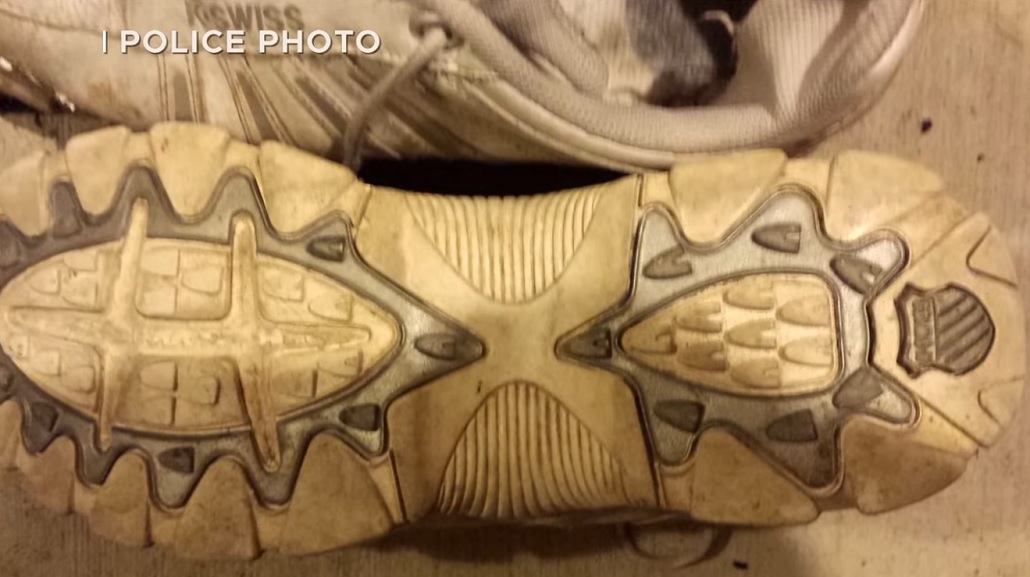Warning: Graphic content, readers’ discretion advised. This story contains a recollection of crime and can be triggering to some readers discretion advised.

On July 24, 2014, 14-year-old April Millsap was murdered while walking her dog on the Macomb Orchard Trail in Armada, Michigan. James VanCallis Jr. was convicted of the crime and sentenced to life in prison without parole.

Millsap’s body was found in a drainage ditch near the trail by a couple out jogging who were alerted by her dog, Penny, whimpering in the nearby woods.
The high-profile murder of 14-year-old April Millsap in 2014 remains one of the most shocking crimes in Michigan’s recent history, captivating national attention due to its brutality, the small-town setting, and the innovative use of technology in solving it.

April Millsap was an eighth-grader at Armada Middle School, described by her family as outgoing, athletic, and close to her loved ones. On July 24, 2014, around 6:30 p.m., she left her home in the quiet village of Armada (population ~1,700) to walk her border collie, Penny, along the popular Macomb Orchard Trail—a scenic, multi-use path for hiking and biking. This was a routine she followed almost nightly.
April texted her mother, Jennifer Millsap, and her boyfriend shortly before 7 p.m., with her last message reading, “I think I almost got kidnapped.” She never returned home.

Jennifer began calling and texting her daughter, and by 8:30 p.m., Penny was found barking frantically near a drainage ditch off the trail near Fulton and Depot roads.
Two joggers followed the dog and discovered April’s partially clothed body in the woods, beaten and strangled.

The scene indicated a violent struggle: her phone and helmet were missing, and she had suffered 48 injuries, mostly to her head and neck, including blunt force trauma from stomping and an attack with a motorcycle helmet.
An autopsy revealed she had been dragged into the woods, stomped on (leaving a distinctive herringbone shoe print on her neck), and killed between 6:30 and 7:00 p.m. There were no signs of sexual penetration, but evidence suggested an attempted assault. April’s loyalty to Penny was poignant—the dog stayed by her side until help arrived.

The murder stunned Armada, a tight-knit rural community 50 miles northeast of Detroit, prompting an unprecedented response.

Over 70 officers from Armada Police, Michigan State Police, Macomb County Sheriff’s Office, and the FBI set up a command center in a local school. They conducted neighborhood canvasses, drained a nearby pool for evidence (recovering April’s phone), and searched the trail extensively.
Police received nearly 1,000 tips. Early on, they released a composite sketch of a person of interest seen near a dented gray painter’s van and a motorcycle, urging the public to come forward.

April’s phone had the Mologogo app (a now-defunct fitness tracker). Data from it pinpointed her exact location at 6:51 p.m.—just yards from her body—and showed her phone moving away from the scene at 7:02 p.m., carried by the killer. This digital trail was crucial, as traditional evidence like DNA or fingerprints was absent.

Three witnesses reported seeing a man on a motorcycle talking to April on the trail around 6:30 p.m. Gas station video captured a matching motorcycle in Armada that evening. A resident’s home surveillance showed it passing by at 6:30–6:40 p.m.

Less than a month later, in August 2014, James Donald VanCallis Jr., a 32-year-old from nearby Goodells, was named a person of interest after his arrest (with his father) on unrelated marijuana charges. A search of their home uncovered a dirt bike matching witness descriptions, and VanCallis was known to frequent the area. No prior connection between him and April was found.

On October 8, 2014, Macomb County Prosecutor Eric Smith charged VanCallis with:
First-degree premeditated murder
Felony murder
Kidnapping
Assault with intent to commit sexual penetration

Prosecutors argued VanCallis approached April on his motorcycle, propositioned her sexually, and attacked her when she refused—striking her with his helmet, dragging her off the trail, and stomping her to death. Key evidence included:

The Mologogo app data linking his movements to the scene.
A shoe print on April’s neck matching boots seized from VanCallis.
Eyewitness sightings of him with April.
Motorcycle video and tips placing him there.

The defense, led by attorneys who highlighted the lack of DNA, fingerprints, semen, or direct ties, called it a “witch hunt” based on circumstantial evidence. VanCallis claimed he was in the area but not involved.
The month-long trial began in January 2016 in Macomb County Circuit Court before Judge Mary Chrzanowski. Haunting testimony came from an Oakland University professor who saw April alive shortly before, and from April’s mother, who recounted the frantic search. On February 8, 2016, after deliberations, the jury convicted VanCallis on all counts in under two days. The courtroom gasped as the foreman announced “guilty” on first-degree murder.

On March 30, 2016, VanCallis, then 34, was sentenced to life without parole. Prosecutor Smith called it “a day of justice” for April’s family, while Jennifer Millsap addressed the court: “You took away my daughter’s future… I hope you rot in hell.” VanCallis showed no remorse, maintaining his innocence.
He appealed in 2017, arguing evidentiary errors, but the Michigan Court of Appeals upheld the conviction in December 2018, finding no merit to his claims. As of 2025, VanCallis remains incarcerated at Parnall Correctional Facility in Jackson, Michigan.

The case shook Armada, leading to grief counseling at schools and community vigils. In 2016, the April Millsap Memorial Garden was established near the trail—a serene space with flowers and benches that won a state award for community projects. It symbolizes healing but also serves as a reminder of vulnerability on public paths.
his tragedy underscored the dangers of everyday routines and the power of community and technology in seeking justice. April’s family has largely stayed private since the trial, honoring her memory through advocacy for trail safety.
